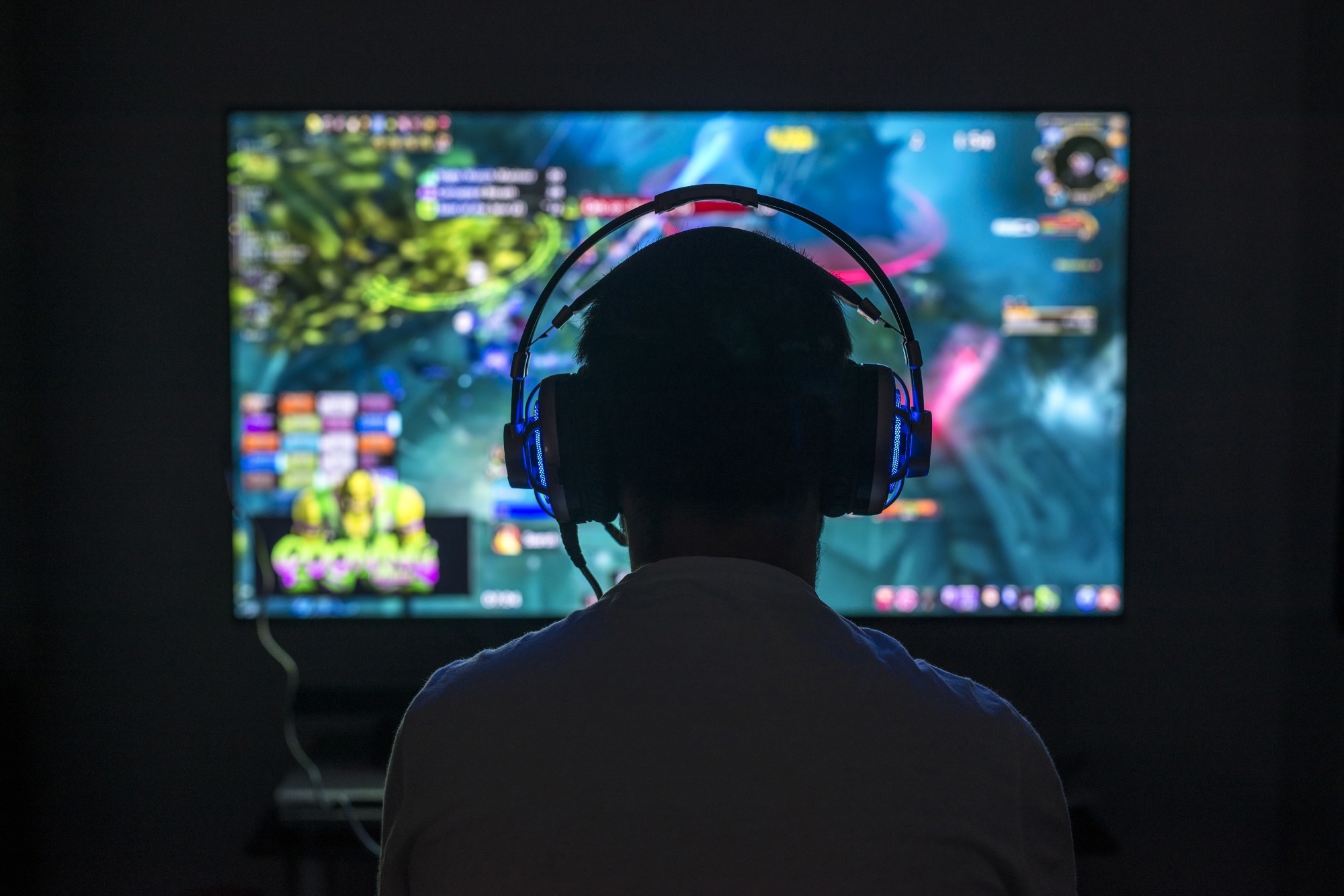They found that bronchoscopy skills were associated with video gaming expertise in participants who were beginners.
 Study: Video gamers demonstrate superior bronchoscopy skills among beginners. Image Credit: sezer66/Shutterstock.com
Study: Video gamers demonstrate superior bronchoscopy skills among beginners. Image Credit: sezer66/Shutterstock.com
Background
Flexible bronchoscopy is a vital procedure in respiratory care employed in diagnosis and treatment. Recent advancements have emerged in simulation-based training for bronchoscopy, using virtual reality and robot-assisted technologies.
Similar to video games, these technologies offer benefits by improving skills and reducing patient discomfort during bronchoscopy. Video game experience and bronchoscopy techniques require a common skill set, including rapid decision-making, visuospatial awareness, and psychomotor skills.
This is particularly evident during bronchoscopy in how operators navigate bronchial structures on a monitor and manipulate instruments for various tasks.
The first-person perspective and the use of devices resembling forceps to access and insert into specific bronchial areas in bronchoscopy share similarities with the skills required in three-dimensional (3D) shooter games, including first-person and third-person ones.
While prior research has associated video game playing with enhanced performance in various medical procedures, little attention has been given to bronchoscopy-specific skills.
Therefore, researchers in the present study aimed to fill this gap by evaluating both bronchoscopy techniques and video gaming skills, providing insights into the potential correlation between video game expertise and proficiency in bronchoscopic procedures.
About the studyTop of Form
The present prospective study was conducted between 2021 and 2023 in a hospital in Japan. Data on bronchoscopy techniques and skills playing the game SPLATOON 2 (using a Nintendo Switch console) were compared.
In this video game, players were made to use a joystick or gyro to shoot paint bullets in a team to paint a field. Exclusion criteria included participants with 1–99 bronchoscopies and those playing the game without a joystick.
The participants were categorized into two major groups: an inexperienced group (medical students or residents, n = 23) and an experienced group (respiratory physicians with ≥100 bronchoscopies, n = 18).
The median age in both groups was 27 years and 33 years, respectively. Fifteen participants in each group were male.
These groups were further segmented into gamer and non-gamer subgroups. While the gamer subgroup included individuals playing games for ≥1 hour per week for ≥6 years, the non-gamer subgroup included those participants who lacked gaming experience or played games that did not involve character control.
12 members in the inexperienced group and 10 in the experienced group were classified as gamers.
Proficiency in bronchoscopy was evaluated regarding the duration of bronchial lumen observation, termed "observation time." On the other hand, participants' video gaming skills were assessed in terms of the “game completion time.” A shorter game completion time reflected a greater ability to accomplish tasks swiftly.
Statistical analysis used Spearman’s correlation, Fisher’s exact, and Mann–Whitney U tests.
Results and discussion
In the inexperienced group, the median bronchoscopic observation time was 215 seconds, and the median game completion time was 45 seconds.
The experienced group showed a significantly shorter median bronchoscopic observation time of 103 seconds than the inexperienced group (p < 0.001). However, the median game completion time in the experienced group (41 seconds) did not significantly differ from that in the inexperienced group.
Although bronchoscopic observation time and game completion time showed a moderate linear relationship in the inexperienced group, no correlation was observed in the experienced group.
Gamers in the inexperienced group showed significantly shorter bronchoscopic observation times and game completion times than non-gamers.
Within the experienced group, bronchoscopic observation time was not significantly different, but the game completion time was significantly shorter in the gamers compared to the non-gamers.
The study's limitations include its single-center nature, small sample size, and potential bias due to variations in participants' expertise and aspirations within the inexperienced group. Additionally, the evaluation focused solely on bronchoscopic observation time, neglecting other factors like airway collision rates and spatial tests, possibly limiting the comprehensive assessment of bronchoscopy technique proficiency.
While the researchers recommend avoiding excessive dependence on gaming, given its potentially harmful effects, they highlight that well-managed gaming experiences and training could offer learning benefits that extend beyond the gaming realm.
Especially in the medical field, there is potential for the application of gaming as the techniques continue to advance.
Conclusion
In conclusion, the current study reveals a link between video gaming skills and bronchoscopy techniques in beginners without prior bronchoscopy experience. This implies that individuals familiar with video games may potentially be faster in acquiring proficiency in bronchoscopy techniques.
These findings could contribute to refining bronchoscopy training strategies and understanding how shared skill sets impact proficiency in performing specific medical procedures.